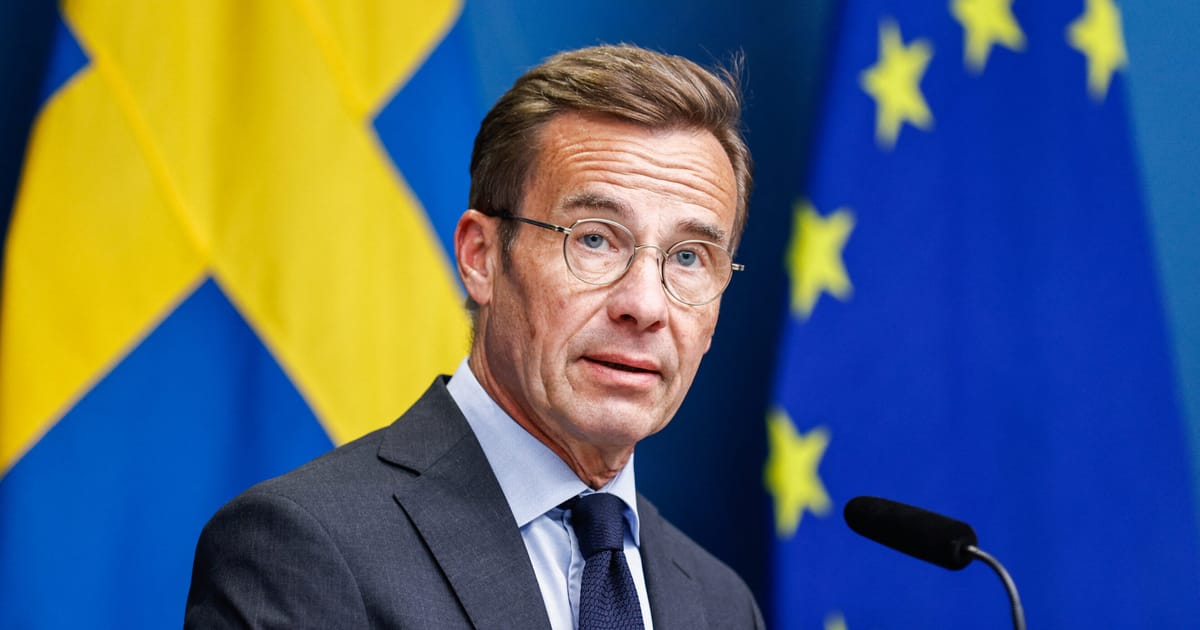

In a series of significant moves shaping international relations, several countries and leaders are taking steps to address pressing geopolitical and humanitarian concerns, reflecting a broader commitment to peace, security, and cooperation.
Sweden has made a notable call for the European Union to reconsider its trade interactions with Israel, driven by the deeply concerning humanitarian conditions in Gaza. Prime Minister Ulf Kristersson has been vocal about the need to address these issues actively, describing the situation as “utterly deplorable” and urging for unified EU action to potentially halt trade ties as a measure to influence positive change in the region.
Meanwhile, in Eastern Europe, a political ripple was felt in Lithuania where Prime Minister Gintautas Paluckas has resigned amidst an investigation into his business dealings. This development comes at a time of potential change, as new coalition talks are on the horizon, signaling potential shifts in the country’s political dynamics and governance.
In Ukraine, progress towards strengthening institutional integrity has been made with President Volodymyr Zelenskyy signing a law that reinstates the independence of critical anti-corruption bodies. This move reflects a reversal from previous controversial legislation and demonstrates a commitment to bolster oversight and trust within the government, ensuring accountability and transparency at all levels.
Further east, Javad Zarif, Iran’s former foreign minister, has put forward an innovative proposal to the international community aiming to establish a UN-endorsed forum for civil nuclear cooperation across the Middle East and North Africa. This initiative seeks to foster peaceful collaboration and share the benefits of nuclear energy while eliminating the perception and fear of nuclear weapon threats in the region.
In the United Kingdom, a debate has emerged regarding the legal implications of the country’s recognition of Palestine. Minister Gareth Thomas has dismissed concerns raised by members of the House of Lords that such recognition might violate international law. He emphasized that the decision is a “political judgment,” aligning with the Montevideo Convention criteria for statehood, reinforcing the UK’s stance on the Palestinian statehood issue.
As political changes unfold across the globe, Myanmar’s military junta has ended its state of emergency ahead of anticipated elections in December. Despite preparations, opposition groups have committed to boycotting the poll, criticizing it as a fabrication intended to legitimize military authority. The international community continues to observe the situation closely, advocating for a genuine democratic process in the country.
Portugal has signalled its intention to join other nations, including Canada, the UK, and France, in recognizing the Palestinian state at the United Nations in September. This anticipated recognition reflects a growing consensus among the international community to acknowledge and support Palestinian statehood, fostering dialogue and potential resolutions for long-standing conflicts in the region.
Collectively, these developments underscore a global commitment to addressing complex challenges through diplomacy, cooperation, and reform. They highlight the importance of international collaboration and the resolve of nations and leaders to work towards more peaceful and equitable global systems, focusing on human rights, governance, and mutual prosperity.
Source: {link}
